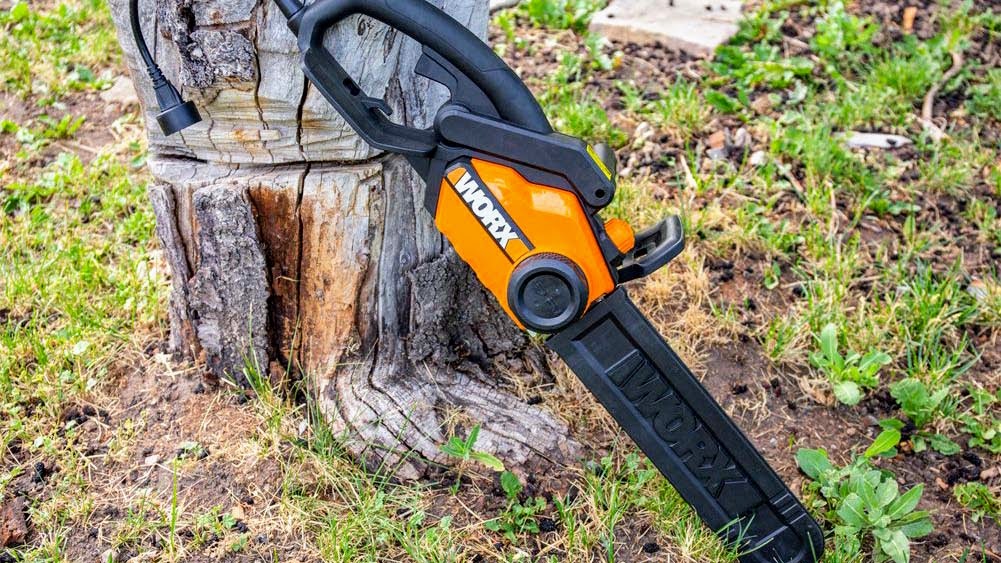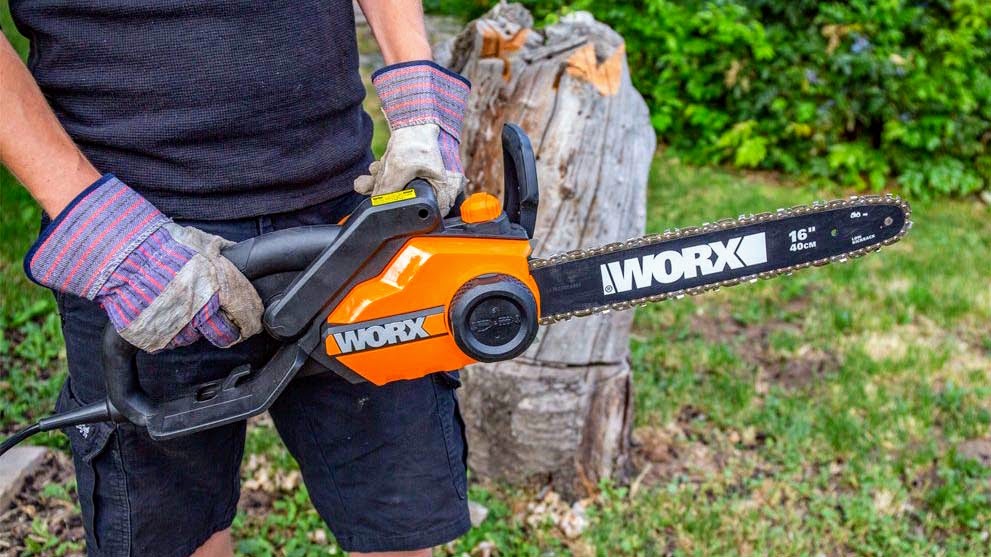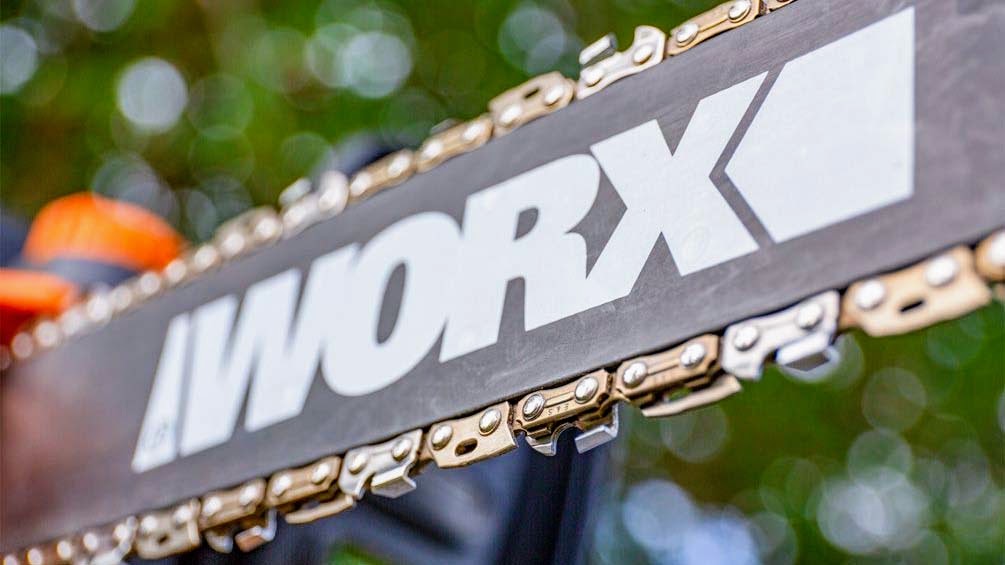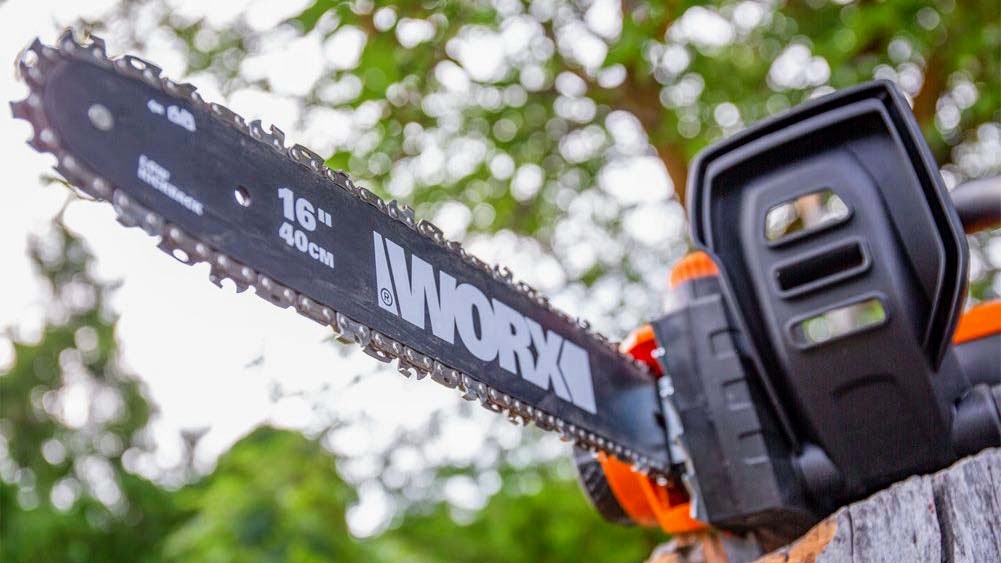There's no point beating about the bush: when it comes to sawing logs, the WORX WG303.1 is one of the best chainsaws we tested.
It is best suited to the occasional chainsaw user who needs to clear brush or fallen limbs near the house. It's quiet and light, making it easy to complete simple jobs. It may not be as powerful as the gas chainsaws we tested, but this 120V saw sliced through our test lumber with satisfactory results.
Having a chainsaw around the house can be useful for odd jobs and DIY projects; however, highly-powered gas models aren’t the right fit for everyone. Electric models like the WORX WG303.1 provide much of the same utility as a gas model while reducing the maintenance and skill required to operate one. And costing less than $100, it is our excellent value pick for this category.

J.D. Chadwick has written for Top Ten Reviews for 15 years, with products under his belt including antivirus software, yard tools, video editing apps and, of course, chainsaws. The WORX WG303.1 is just one of several chainsaws tested by Chadwick, with identical tests used for each.

WORX WG303.1: Design
The WORX WG303.1 delivers 120V of power. At full speed, the saw can reach four horsepower. It comes with essentials like a printed owner's manual, bar scabbard, and engine oil. The chain's life varies depending on what you use the saw for and what kind of wood you cut. This saw is available through most major retailers.
The WORX WG303.1 has a 16-inch guide bar, which is one of the longest among the chainsaws we compared. This allows you to take on more heavy-duty tasks than battery-powered models such as the Kobalt KCS 120-07 and Black & Decker LCS1020, which have 12—and 10-inch bars, respectively.
The corded-power design of this chainsaw is useful or a deterrent, depending on what you intend to use the tool for. Gas-powered models deliver much more power, but these require you to buy and mix fuel to make them work.
Additionally, gas-powered models are much harder to start and require much more maintenance. Corded models like this one are more convenient because all you do is plug it in, and it’s ready to use. You won’t have to pull a rip cord over and over again to get it going. And its motor is far less complicated to maintain than an internal combustion engine. You’ll only need regular maintenance to keep it clean, tightened, and oiled.
Score: 8 out of 10

WORX WG303.1: Performance
During our testing, we used this saw to help clear out an overgrown residential backyard. We found it easy to start, maneuver, and cut with. It performed exceptionally well when cutting down wild, young trees that hadn’t developed thick, hard trunks yet. It was also good at removing dead branches from dying trees and cutting up already fallen wood into smaller pieces. It struggled a bit when it came to slicing through a hardened, dead cherry tree stump – tasks like that are better left to professionals and high-powered gas models.
We used each of the chainsaws we reviewed to cut a 6x6-inch piece of lumber. As we suspected, the gas models did the quickest and smoothest work for this task. They all took well under 10 seconds to cut. The WORX WG303.1 held its own – cutting in about 14 seconds. This may seem exceptionally slow by comparison, but unless you require that speed regularly, there’s no reason to spend $100 extra for a gas model.

This electric chainsaw starts easily and safely. To begin cutting, hold the safety and press the trigger to start the saw. This safety feature makes it hard to start the saw without a sturdy grip on the handle. This isn't the best chainsaw for forestry or ranching jobs unless you have an impressive extension cord; the corded design of this model will keep you on a leash.
Score: 8 out of 10
Should you buy the WORX WG303.1?
With a 120V rating and a four-horsepower capability, the WORX WG303.1 chainsaw delivers reliable power. Although its 16-inch guide bar allows you to tackle heavy-duty tasks, it's not as fast or efficient as gas-powered models. Despite this, the corded design offers convenience since it eliminates the need to mix fuel and endure complex startup processes. While testing, it handled a variety of cutting jobs well but struggled with tougher ones.
Although it's not as fast as gas models, its performance is commendable for most residential and light-cutting needs. However, the corded design makes it less useful for forestry or ranching if you don't have a big extension cord.
